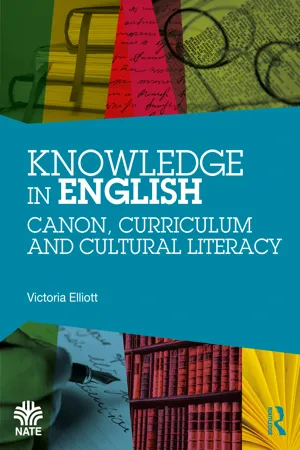Too rarely do we acknowledge in the knowledge-driven curriculum that knowledge has come from somewhere: it is selected by someone and has originated in a particular paradigm. For English teachers, that brings up a number of questions: Who chooses? Whose values do we espouse, whose text choices do we follow, whose version of culture is the one we teach for?
Now, what I want is, Facts. Teach these boys and girls nothing but Facts. Facts alone are wanted in life. Plant nothing else, and root out everything else. You can only form the minds of reasoning animals upon Facts: nothing else will ever be of any service to them.
(Dickens, 1854/2000, p. 3)
The capitalisation of ‘Facts’ suggests they are undebatable, objective, easily identifiable and easily transmitted. Later, Dickens uses the definition of the horse as graminivorous quadruped to demonstrate that facts are perhaps not everything there is to the story of knowledge, and raises the question: Whose facts? The dictionary’s? Gradgrind’s? Or those of Sissy Jupe, the poor girl whose intrinsic knowledge of horses learned at her father’s side has no place in the formal classroom?
Eaglestone (2019) highlights the bias in Hirsch’s cultural literacy model, which we will return to in Chapter 7: too often the culture is that of white men. But ‘Whose facts?’ is just as valid a question. Facts are not valueless, and the delineation of the fact which is to be learned reveals the values behind it. Many of us learned as children, for example, that ‘In fourteen hundred and ninety-two, Columbus sailed the ocean blue’. In the USA, children know a far longer version, with another 13 couplets recounting the voyage, in which Columbus is ‘brave’ and ‘bright’, ‘joyful’ to have found America, where the ‘Arkarawa natives were very nice’. The facts might be that Columbus left Spain with his three ships, seeking the Indies, and ‘discovered’ America; the names of his ships; the year. Few of us learned that Columbus was instrumental in the genocide of the Taíno people (referred to as Arkarawa natives in the poem), who were the indigenous population of the Caribbean. Columbus excitedly wrote in his diaries of trading even ‘broken pottery’ for their riches, and of the native population’s suitability for being servants – he later sent thousands of Taínos back to Spain as slaves, many of whom died, and many of the rest were enslaved as forced labour in gold mines, meaning that there was no labour left to raise food. Within as little as 60 years, there were only a few hundred of an estimated quarter of a million left on the island on which Columbus had landed on his way to mainland America. Memorialisation and memorisation often demands a simple story, not a complex one.
More recently, this was demonstrated by the tearing down of a statue of Edward Colston, the Bristol slave trader, from its plinth in Bristol where it had been erected by the Victorians as a memorial to his philanthropy more than 150 years after his death. The plaque on the statue made no mention of his role in the slave trade; attempts to have a re-contextualising plaque put on the statue had been thwarted by vested interests in the four years leading up to the demolition of the statue. Whose facts?
On the day Colston’s statue was pulled down, there was an instant link made on Twitter by English teachers to the widely taught poem Ozymandias, which brings us back to the other core question of this book: What are we teaching when we teach English Literature? Here is a vivid moment for a classical poem to be used to help students process and make sense of events in their own lives, rather than to use their own lives to make sense of literature. Jane Davis, writing of her practice in Continuing Education, talks of reading ‘literature as myself, through my own eyes, trying to apply it to my own life and my own moral problems’; her classes were ‘a community of regular readers attending, teaching and learning in these classes … to a greater or lesser degree using literature as a practical tool for life’ (Davis, 2018, p. 211). In such a context, how can the ‘facts’ of literature be anything other than pliable?
Some of the concern, both in this section, and more widely in this book, is about the question of representation in knowledge: whose views are represented, who is seen? But as a tool to unpack our own lives, this question is transcended:
Yes, representation matters, but there is more to transformation than looking into a book the way you would look into a mirror. Instead, at Spelman College I learned to understand literature as a means of unravelling the thorny questions of my life as a black woman. Literature wasn’t just about inclusion, it was the springboard to intense questioning.
(Jones, 2019, p. 24)
In the face of ‘intense questioning’, which facts stand?
There are some facts, some concrete knowledge, more or less objectively true, which do stand in English Literature. The year a text was published, the birthplace of the author, for whom it was written perhaps. These facts are easily graspable, as with some of the socio-historical contextual knowledge which is taught alongside literary texts and often forced into GCSE essays by students whether or not it is relevant and helpful to the argument. The things that are easily learnable, however, are not always the most valuable, either within the discipline of English Literature or more widely outside the classroom. Green (2018) asks: ‘What knowledge is of most worth?’ (p. 24), and the truth is that there is not one undebatable answer to that question, as the fierce debates that have rage...
